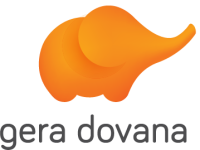Technical eligibility
Duration of experience
Cultural fit
Flexibility of working hours

Complete recruitment project management from an idea to an employee successfully completing the probationary period.
Meeting both necessary and desirable requirements is a key indicator of each candidate’s presentation to the client. We start measuring this KPI in the personnel search phase and refine it in the recruitment part of the project, once the interviews with candidates have taken place. While this KPI is technical and easy to measure, the challenge for every recruitment company is to measure the cultural fit of the candidate with the non-technical requirements, so that the presented candidate meets the full 360-degree spectrum of requirements.
Candidates themselves notice long recruitment processes, wondering why it takes so long for the company to find the right candidate. This is particularly damaging to the employer’s image, which is why the speed KPI in a recruitment project is both important for the client and for the client’s employer image. The Indigroup speed KPI is measured in two parts:
You can have a large number of quality candidates, but knowing how to get along with them is crucial. We focus on the client’s negotiations with the selected candidates: we analyse and provide the client with the candidates’ feedback after each job interview, provide accurate remuneration and career expectations, analyse the offers of candidates’ competitors, participate in the submission of candidates’ final job offer, and mediate the negotiation process while keeping the candidates’ engagement to the maximum.
During the selection process, we interact with a large number of top-level professionals and managers. Even if they reject an offer, a large number of candidates communicate with us about the client company, so in each case we maintain maximum concentration in order to create a good impression and to leave contacts for a possible future candidacy with the client company. Experience shows that some of the rejected candidates gain more experience and subsequently succeed in the client’s recruitment process, so this KPI pays off handsomely.
We always help the client to understand what can be expected on the job market, but the need itself must be confirmed internally and clearly defined. If the need is not entirely precise, we help the client to confirm the minimum requirements for the candidates, so that the selection process can take shape and a clear long list of candidates can be created in the database.
We do the first task of motivating candidates, but the best candidates need a motivating offer. Job interviews, assignments and even negotiations must be motivating and engaging. We advise the client on the right number and content of job interviews, how to present a job offer, and how to negotiate remuneration and other conditions. We work with the client to keep the candidate’s motivation at the highest level throughout the selection process.
We always inform the client of the outcome they can expect in the recruitment project (even the approximate number of candidates), so that the search project is a clearly time-planned structured exercise. In a recruitment project, we present candidates on the same day we assess them, so the client’s response needs to be dynamic to keep candidates motivated. If candidates are forced to wait for a long time, some of them will simply choose another offer. That’s why we clearly define the process of recruiting the right candidate with the client.
When searching for important positions for a company, as far as the NDA allows, we want to know the behind-the-scenes details so that we can provide the best possible recruitment service. Just as a patient who tries to specify all the symptoms of a disease, our client who tries to detail the origin of the need for the position, the future challenges for the employee, the risks and the career opportunities, helps us to better assess the need and to provide the ideal candidates.
Candidate database and database administrator, managing and expanding the long lists of candidates by area. A dedicated specialist allows the full potential of the database to be exploited.
Partnerships – we are a long-term partner of all public recruitment channels, we belong to specialised professional groups, we are visible on major news portals – these partnerships ensure maximum efficiency in public recruitment.
Dedicated recruitment project managers by the field of the position sought. Selections to financial positions are handled by the project manager responsible for this area, while digital marketing or IT roles are the responsibility of another project manager delegated to this area, etc.
HR copywriting – we have a long track record in HR copywriting and our public employer communications, job adverts and sales messages (USPs) are accurate and effective.
Whether you’re looking for a CEO or a .NET Developer, we’ve screened dozens of the same positions over the last year, so your search with us never starts from scratch. Success stories allow us to collect data on the best candidates and immediately offer the most suitable specialists and managers to the client.
Salary range data – the client always receives up-to-date and accurate statistics on the salary budgets for the positions they are looking for. By collecting this information, we help the client to accurately determine the costs of the positions they are looking for.
Public recruitment is a traditional method of recruitment that has lost much of its value in recent times. A recruitment company’s goal is to use all recruitment channels, so this channel can generate up to 15% of candidates depending on the position being sought if used properly.
Direct recruitment is the main recruitment method and, in confidential recruitment projects, the only way to select candidates. The results of a recruitment company depend to a large extent on the ability to fully exploit the potential of this method. Of course, this requires a large and up-to-date database, an excellent image of the recruitment company when approaching passive candidates, and the technical knowledge of the candidates’ work field. A professional recruiter can turn direct search or headhunting into a flawless candidate attraction engine.
Referral search – the referral method of recruitment and selection adds to the total number of candidates in recruitment projects where we are looking for rare and specific positions or where candidates have closed contact groups where they share knowledge and communicate. We use this recruitment method in all our recruitment exercises without exception and, even if it does not bring in many candidates, it leads to good contact with the best professionals and managers in the market in their fields. It is this connection that then gives us access to more candidates in future recruitment projects.
Professional networks – this recruitment channel includes specific LinkedIn, Facebook, Discord candidate groups, all business associations, specialised conferences etc. The best professionals are often not looking for a job when we are looking for them, so we need to be where they are to meet them.
Technical eligibility
Duration of experience
Cultural fit
Flexibility of working hours
Meeting expectations
Loyalty history
Recommendations
Darbo laiko Motivation levellankstumas
Is the position being sought new, or is it a replacement? Recruitment without context is not of good quality, so we always want to know how the need arose.
Has a search been performed before? If the search has a history, we’ll try to find out what that history was and how we can make it successful.
What is the untouchable list? Our direct recruitment process includes all target companies, so if a client has partners from whom they do not want to recruit, we always discuss the issue of an untouchable list.
What is the ideal candidate benchmark? If the client can point to a specific person or an implied image of the ideal candidate, we will always consider this as a technical benchmark and compare the candidates against the ideal candidate when presenting them.
What is the company’s internal culture? Even a candidate who meets all the technical requirements will always be presented with a cultural fit assessment, so we try to know as much as possible about them.
Matching the need and confirming the final position description
Submitting the first candidates
Client interviews with candidates
Tasking and deciding on the most suitable candidate
The recruitment project moves into the guarantee phase, where the recruited candidate tests and tries out the new position and the employer evaluates candidate’s performance.
The shortest search conducted by Indigroup took 8 days to recruit a suitable candidate.
The longest took 3 months and took place in five countries simultaneously.
On average, it takes us 1 month and 3 days from the start of the selection process to recruiting the right candidate.
%
Recruitment prices
%
Recruitment prices*
*Paid only after recruitment of a suitable candidatetą
How do I find out the cost of recruitment?
There are two steps to find out the cost of recruitment:
1. To contact a recruitment company.
2. To forward the job description to the recruitment company.
The above two steps are certainly sufficient and the recruitment company will give you an accurate recruitment price for the position you are looking for.
How do I assess whether the recruitment company has carried out the selection process properly?
The main parameters for assessing the quality of the work of a recruitment company are three:
1. Total number of candidates selected.
2. Eligibility level of selected candidates.
3. The dynamics of the work done, i.e. how long it took for the recruitment company to come up with at least three candidates who met the requirements.
Of course, there are also the qualitative parameters of advice during recruitment projects, information on the status of the recruitment project, etc., but the main qualitative parameters of recruitment are the three listed above.
Does it make more sense for the employer to conduct recruitment in-house or use a recruitment company instead?
Both methods can certainly ensure quality recruitment, but the project managers of a recruitment company only work on certain recruitments and have a clear specialisation, e.g. they are dedicated to finance or IT recruitments and only work on such recruitments with a workload of 10 or more positions per month. This simply allows us to offer the right candidates more quickly and efficiently, as they are all already known and vetted in previous recruitment projects.
What are the main recruitment channels currently generating the best flow of candidates?
The main channel is direct search or headhunting. This channel must be a key one in projects to recruit senior professionals and managers. Public Search has moved from traditional job search portals to social portals such as meetfrank and LinkedIn, so that traditional public search is now the third most effective channel after headhunting and social portals.
Are tests a useful tool in recruitment to assess the suitability of candidates for the position?
In particular, only candidates who have already been selected, i.e. those who have already passed the first stages of the recruitment process, should be tested. It is a big mistake to make testing the first step in the recruitment process. If the company is certified in the use of testing methodologies for recruitment, then testing is a good comparative aid for candidate selection. Testing one candidate without comparing them to another or to another group of candidates is also a flawed selection method, and we do not recommend this practice.
Can recruitment be unsuccessful and why?
When assessing a client’s enquiry, the recruitment company also assesses the potential supply of potential candidates. Typically, data from previous similar recruitment exercises are used to project the likely outcome of a recruitment project. By adding the variables of attractiveness of the employer and the salary offered, the recruiter is able to give a reasonably accurate indication of the future number of candidates in the recruitment. Even if the number is insufficient, the recruitment firm’s specialists can suggest changes that would increase the number of potential candidates in the selection. Thus, the risk of unsuccessful recruitment is minimised by the analysis of the recruitment project.
Is there a guarantee for staff selection?
A recruitment company will normally offer a minimum 3-month guarantee on its services. For a recruitment project in a specialist role, this is sufficient, but for an executive search project, a minimum of 6 months is more common. Recruitment companies usually offer a free re-recruitment guarantee. A less common practice is a full or partial refund of the amount paid if the selected candidate is not successful. The latter type of recruitment guarantee does not solve the problem of employee replacement. Indigroup provides a free replacement guarantee for all recruitment projects, with a minimum term of 3 months.


























